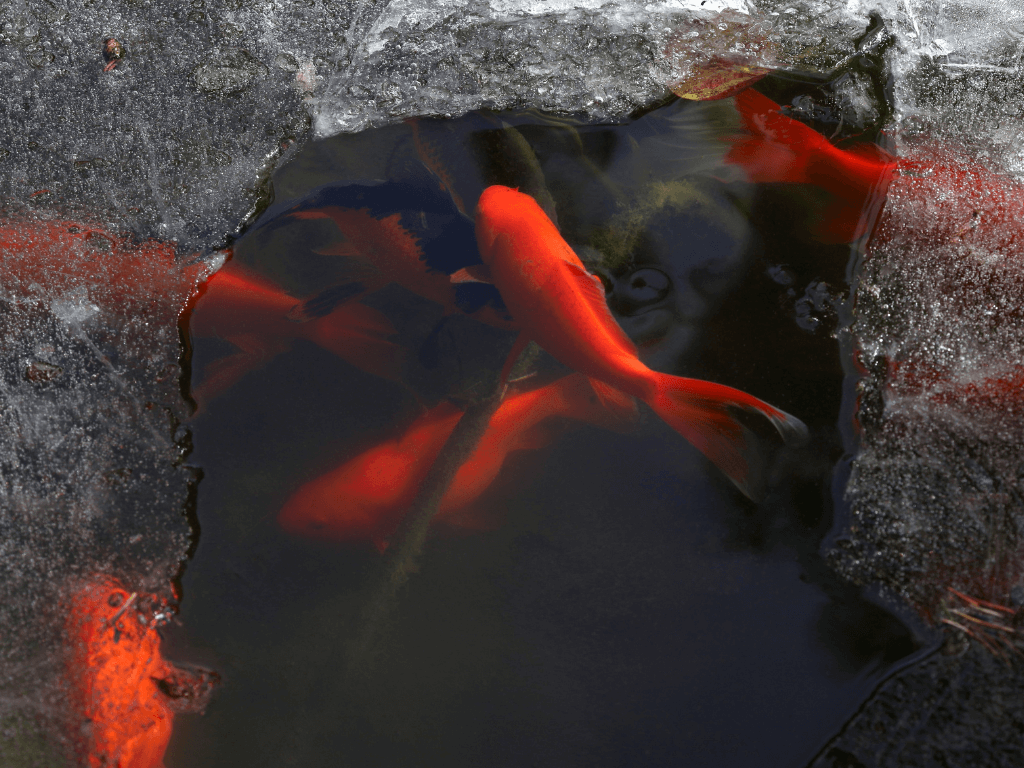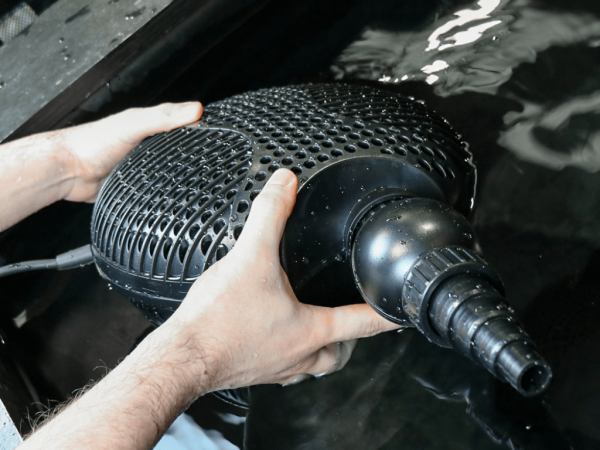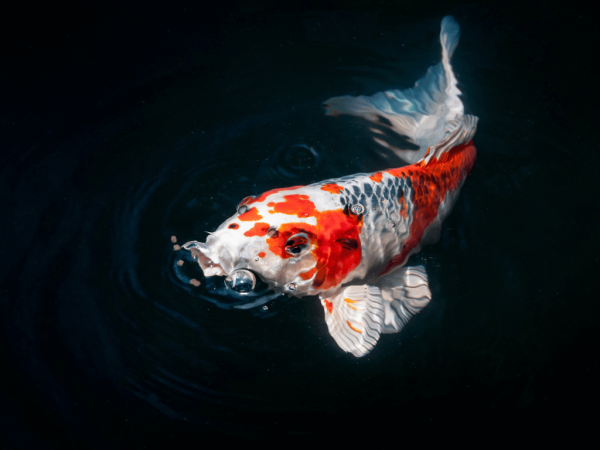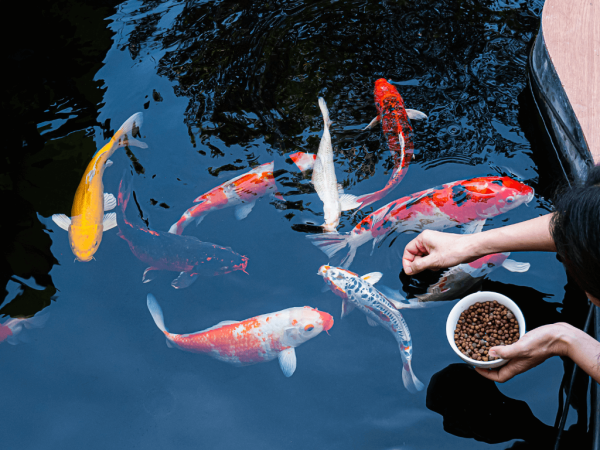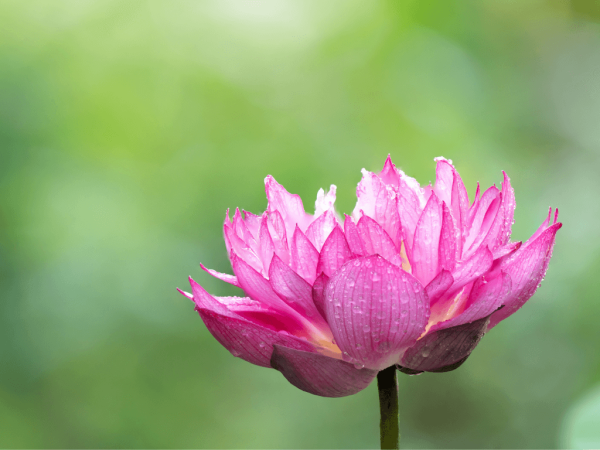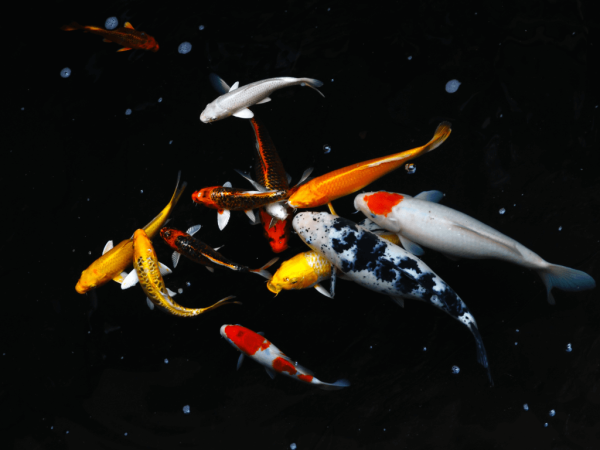How To Winter-Proof Your Pond
A pond isn’t just for spring or summer; it needs looking after in winter too. These colder months can be particularly unkind to your pond and its inhabitants, causing all manner of problems that, to first-time pond keepers, can put them off the hobby entirely.
But fear not, for there are many things you can do to winter-proof your pond and keep your fish happy and healthy during this chilly period. Here’s a list of some of the most common issues that pond keepers face in winter and how to fix them, according to our expert team here at Swell UK…
How to stop your pond from freezing over
It’s getting cold out there, so cold that the water in your pond may be starting to freeze. A few patches of ice aren’t typically a problem, but if you let your pond completely freeze over then it can have some devastating effects on the health of your pond and its inhabitants.
Almost everything that lives in your pond needs oxygen to survive, and most oxygen available in water is directly absorbed from the atmosphere. If your pond’s surface is completely covered in ice, then oxygen can’t dissolve into the liquid water underneath. A layer of ice can also trap harmful gases, like methane, inside your pond and prevent them from ‘gassing off’.
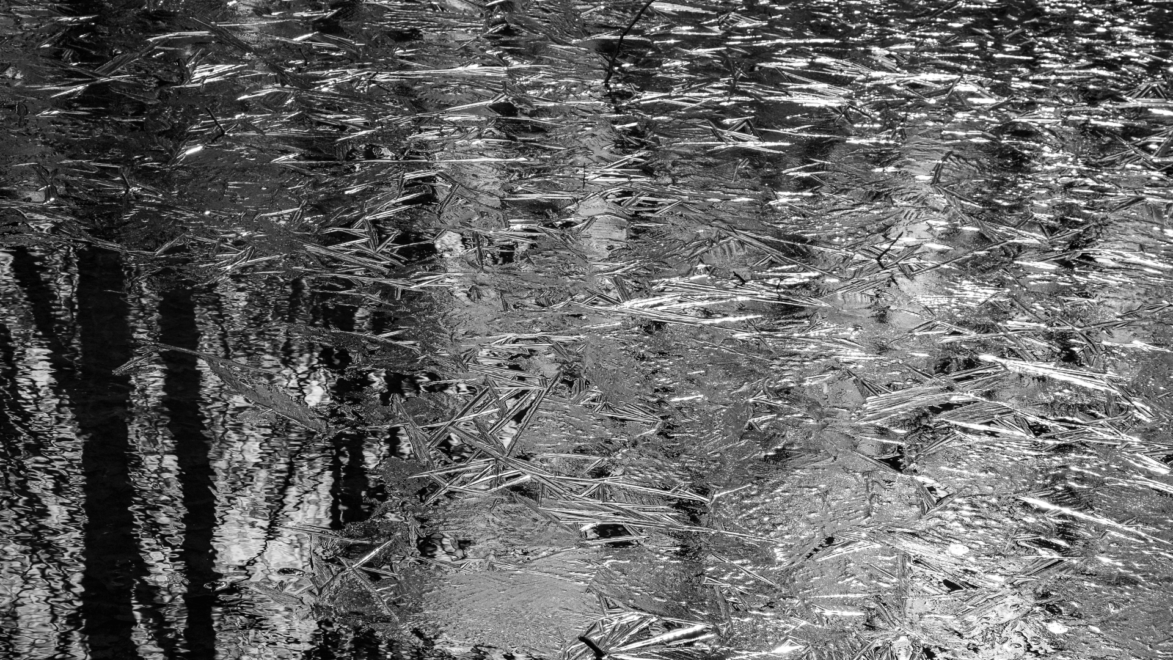
There are several ways to prevent your pond from freezing over and ensure constant gaseous exchange. The most effective way is to install a pond heater. These don’t typically heat your entire pond, rather a small area around the heater. This is great as it cuts down on energy consumption while also keeping a portion of your pond’s surface ice-free.
For small, geometrically shaped ponds, an insulating sheet cut to size is a great way to trap in heat. And for an inexpensive and simple method, try tossing an inflatable football into your pond the night before a Big Freeze – it’ll float around and prevent a layer of ice from forming all the way across your pond.
Some pond keepers also keep their pond pumps running throughout winter in a bid to keep the surfaces of their ponds free of ice. This is an effective method, as flowing water is less likely to freeze, but it can be risky during particularly cold winters. A pond pump has a lot of delicate internal mechanisms and if these freeze while the pump is turned on, they can easily break.
How to feed your pond fish during winter
Most pond fish enter a dormant state during winter, much like hibernation. They don’t technically hibernate, but their digestive systems do dramatically slow down. This means they don’t need much food; some pond keepers even choose to stop feeding their pond fish entirely in winter!
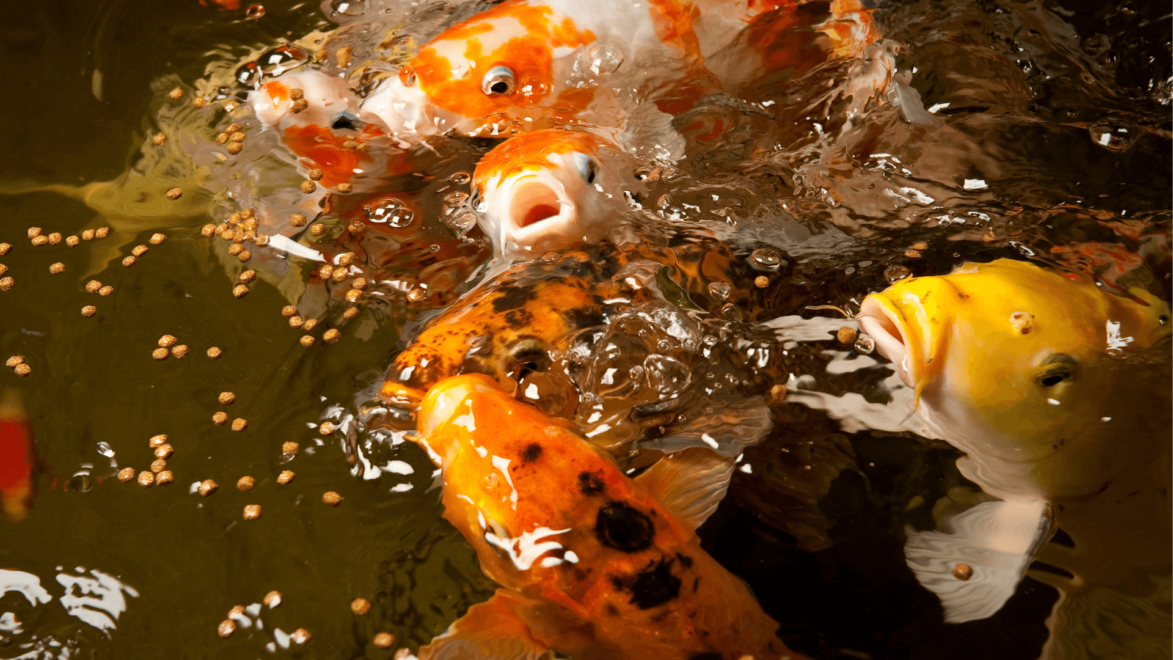
For peace of mind, however, it’s a good idea to offer your pond fish something to eat around 2-3 times a week. The best kind of foods to feed in winter are those high in wheatgerm, a natural, wheat-based foodstuff that aids a fish’s digestive system. Avoid feeding standard, high-protein foods during these colder months as they can lead to constipation and other, more serious health problems.
As winter turns into spring and temperatures start to increase, create a mix of wheatgerm and standard, high-protein food to feed your pond fish. This will kickstart their digestive systems and get them ready for summer when they’ll go back to a largely protein-based diet. By doing this, you’ll provide your pond fish with the variable nutrition they need to really thrive.
How to prepare your plants for winter
There are hundreds of different types of pond plants, and they all require slightly different levels of care on the run-up to and during winter. For cold tolerant pond plants like lotuses and hardy water lilies care is quite simple, just prune them back and lower them into a deeper part of your pond where temperatures remain a few degrees warmer.
For those pond plants that typically die off on the run-up to winter, also known as annuals, make sure they’re cut down to their crowns and their dead stems, leaves, and flowers are removed. This will encourage new growth in April and May when they suddenly spring back to life. A lot of these less hardy plants can also be overwintered in a greenhouse or garage, but make sure you bring them inside and place them in a warm tub of water before they start to wither away!
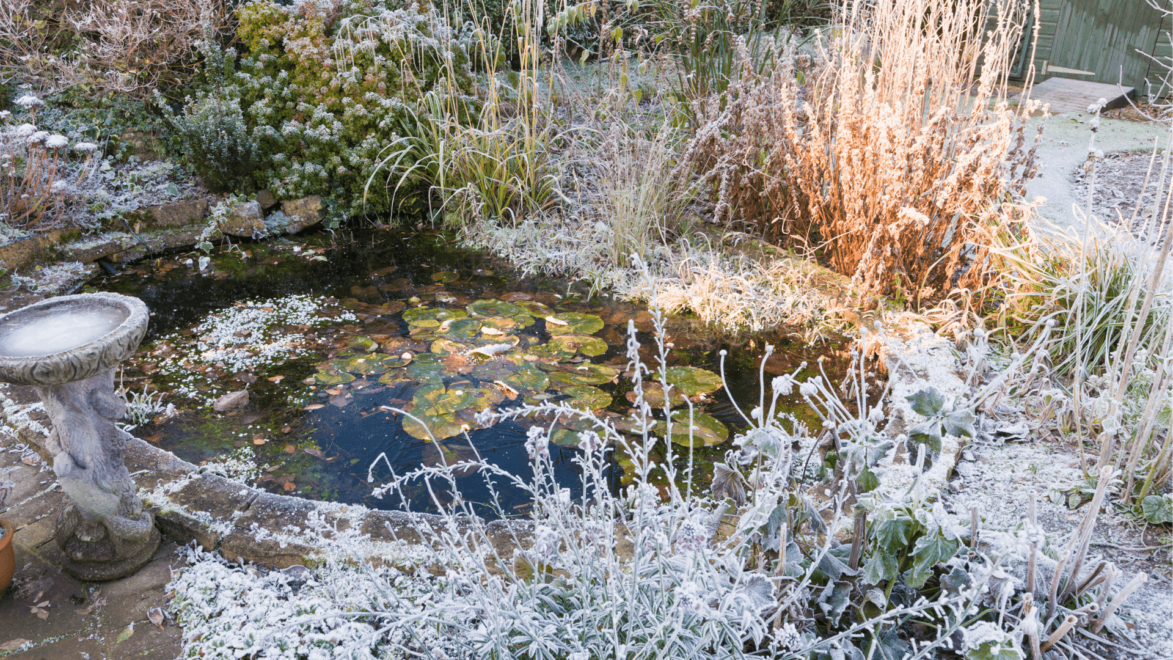
It’s important to prepare your marginal pond plants for the colder months too, especially if you keep pond fish. A lot of marginal pond plants, like reeds, rushes, and grasses, typically die off on the run-up to winter and can end up choking your pond with decomposing matter. This can result in deadly ammonia spikes, so make sure you set aside some time to properly muck out the margins of your pond before it’s too late!
How to maintain your pump during winter
It’s a hotly debated topic whether or not you should keep your pond pump running during winter; some pond keepers say it’s a must, while others advise turning it off and bringing it inside in order to protect its delicate internals against frost. Like most things when it comes to pond keeping, there’s no single correct answer. Instead, it depends on the following factors: How big is your pond? Do you keep pond fish? And what’s your local climate like?
Reasons FOR keeping your pump running
If you have pond fish, then it’s a good idea to keep your pump running. As well as keeping your filtration powered, a running pump will also keep your water moving, reducing the risk of your pond completely freezing over. A handy tip, provided you’re using a submersible pump, is to raise it so that it only mixes the top few layers of water. This will ensure that your pond’s bottom layer stays a few degrees warmer and therefore more habitable for your pond fish.
Reasons AGAINST keeping your pump running
For those of you who have a wildlife pond with no pond fish, then there’s no need to keep your pump running – cut down on your energy expenditure and protect it from frost damage by turning it off and bringing it inside. If you have a waterfall/fountain in your wildlife pond, then you may want to keep your pump running in order to keep it flowing with water. It’s worth bearing in mind, though, that waterfalls and fountains are prone to ice blockages during winter. On occasion, these blockages can cause water to divert away from your pond, effectively draining it.
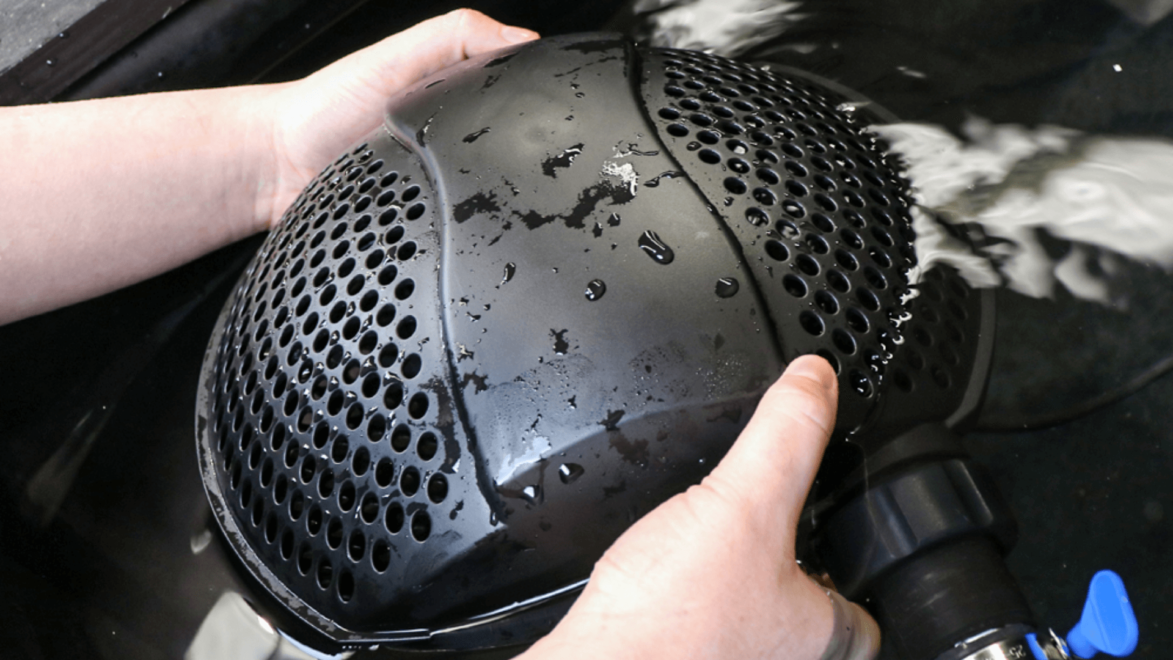
As mentioned above, frost is very bad for your pump’s delicate internals. If you live in an area where temperatures regularly drop below zero in winter, then it’s a good idea to turn your pond pump off, bring it inside and – if you’re keeping pond fish – find another way to stop your pond from completely freezing over. If your winters are typically quite mild, on the other hand, then you should be able to get away with keeping your pond pump running year-round.
How to deter predators during winter
In winter, herons can get even more daring. This, combined with the fact that your pond fish slow down during the colder months, dramatically increases the risk of predation. Fortunately, there are a lot of humane ways to deter a hungry heron and, in doing so, keep your pond fish safe.
A decoy heron can work very effectively, but there’s no better protection for your pond fish than a fine, well-fitted pond cover net. These nets will stop herons from wading into your pond and using their long beaks to snatch your pond fish.
If you’ve already tried both of these methods and your pond fish are still falling victim to predation, then it may be time to try a laser guard. These are high-tech devices that emit a shrill sound and flashing lights that herons hate. They’re great against other common pond predators too, like domestic cats and dogs.
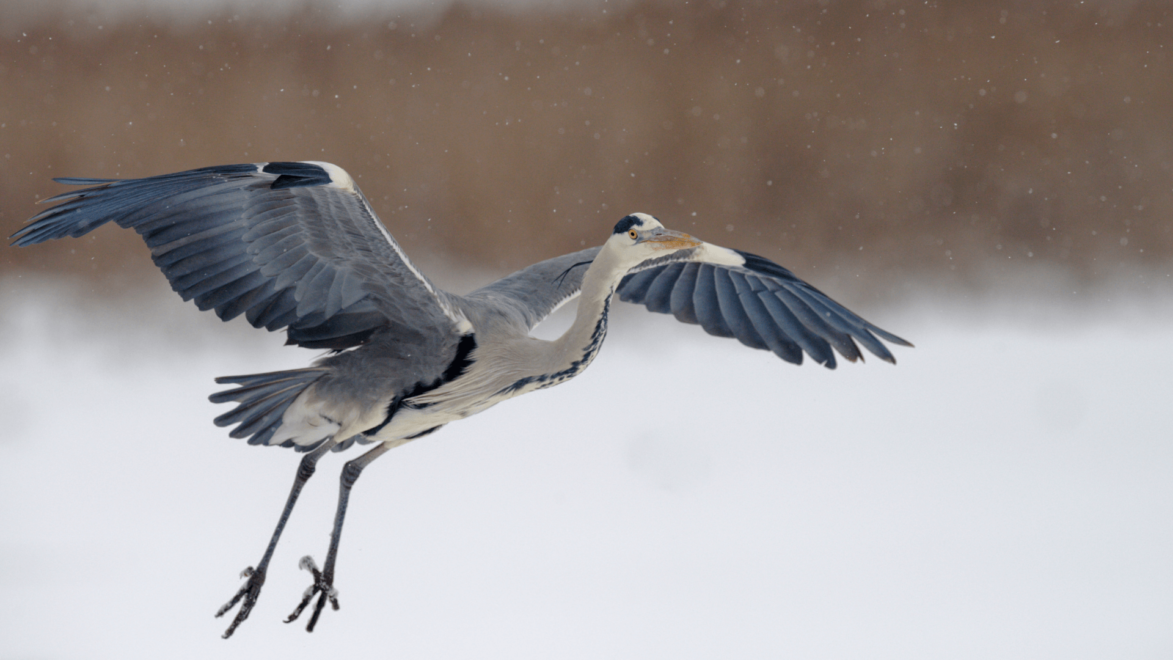
Things to avoid doing to your pond in winter
There are a lot of do’s and don’ts when it comes to winter pond care. We’ve already gone through the do’s, here’s a list of some don’ts:
- DON’T bang on ice – The sound waves from doing this can seriously harm your fish. Instead, pour some hot water into a bottle and place it on a patch of ice to slowly melt it.
- DON’T add new fish – This will add extra waste to your pond during a time when it’s important to keep your bio-loads low.
- DON’T forget water treatments – Lots of debris and algae can build up in your pond during winter. Keep your water clean and clear by using our wide range of treatments.
- DON’T leave your fish to fend for themselves – They might slow down during this period, but your pond fish still need feeding and protecting from any hungry predators.
- DON’T forget to clean – Find time to give your pond a good clean before and after winter. This will keep your pond healthy and ensure it flourishes when spring eventually rolls around.
It might seem months away, but pond season is well on its way. Get ready for spring and summer by shopping our amazing pond deals now!




